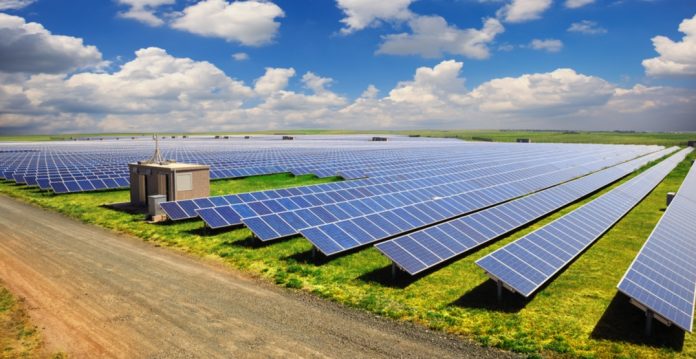Solynta – Why is Solar Power So Expensive?

How to eliminate electricity cost from your business
2018-04-25
Why Solar is a Suitable power option for frozen food Business
2018-05-02This week, the honurable minister for Power made an interesting comment about power
Thank you for reading this post, don't forget to subscribe!in Nigeria. He stated that the problem is not a technological one, as the technology has been in use to generate electricity for over 100 years. He’s absolutely right.
As a prominent player in the renewable energy space in Nigeria, we are very involved in the process of trying to eradicate the chronic power problem we have in our country. As the leading urban residential and SME solar power company in Nigeria, we have a large and growing customer base – all of whom now enjoy 24 hours power daily.
However, there is one major feedback that comes up time and time again from some of our potential customers (numbering into tens of thousands – all of whom are desperate to go solar but simply cannot afford it). The perception from them is that we don’t care about the average Nigerian – otherwise we’d make the prices more affordable.
Fortunately, the situation is exactly the opposite! Interestingly, Our mission is to provide power to all Nigerians – most especially those who are suffering under the tyranny of small scale generator usage. Indeed, I founded Solynta Energy with the specific mission of powering 20 million homes and businesses by 2030 – thereby saving a collective $20 billion a year in fuel costs and generator purchase expenses in the process. This mission remains fore-front and centre of our daily strategy. As a British Nigerian born and raised in London (and having been here for 5 years now) I believe deeply in the dream of a great Nigeria and have a burning desire to leave a positive mark on it in the arena of power provision.
However, its very important to explain in more detail the specific challenges of the business – and provide a better understanding of the business model we adopt in order to get us to our end goal.
Firstly, we must understand that there is a very strong precedence for a solution to the power problem. 18 years ago, you couldn’t make a phone call in Nigeria. I remember vividly as a young man when my late father would call us in London – from Nigeria. My late mother would ask all of us to stay in the house the whole of that day as daddy was going to call. The phone call was an event to be celebrated – when it finally came. We each had a 45 second time allocation to speak to him, before his call time in the business centre was exhausted.
You see back in the year 2000, there were a total of 75,000 NITEL lines for a population of 140 million people. The maths clearly didn’t work and as a result, making and receiving a phone call in Nigeria was a thing of luxury. Then along came MTN and later, other telecommuncations companies who created a distributed communications system that suddenly enabled Nigerians to make phone calls – totally unshackled from the existing NITEL cable infrastructure. Today we have over 190 million registered lines in Nigeria, and even our grannies in the village have cheap access to a phone and can speak to their family members in the west at any given time. Quite a transformation that I’m sure we all agree.
This is exactly the way the power crisis of Nigeria will finally be solved. Distributed Solar Home Systems will be rapidly installed on the roofs of tens of millions of homes and business premises – giving instant and uninterrupted 24 hours power. After 5 years in Nigeria, I’m now more convinced than ever that not only is this going to happen – but it’s going to happen within 10 years.
However, this does not answer the central misunderstanding that we fix the price of our products at a price point that’s unaffordable to the average Nigerian in which case, how is it possible that the vision I paint of a fully powered Nigeria within 10 years can become a reality.
To better answer that question, I’d like to refer back to MTN and the start of the telecommunications revolution in Nigeria that has so absolutely transformed our lives for the better. Indeed, I’m willing to wager that 90% of people reading this article are doing so from a Smartphone.
Those who are old enough to remember will note that it cost something in the region of N50,000 (then $500) to purchase the sim card alone – and the calls were billed on a per minute basis. These price points were very clearly not for the masses where only the privileged few could afford to get a phone. And yet, MTN’s mission statement upon entry to Nigeria was to provide cheap and affordable telephone services to all Nigerians. This mission statement seems entirely at odds with the reality of charging $500 for a sim card – an amount only the privileged few can afford.
However as a businessman in Nigeria, I understand entirely why it was necessary for MTN to adopt this strategy. You see, doing business in Nigeria is extremely challenging in a myriad of ways. In my view, access to and the cost of capital are far and away the biggest challenge we face. Closely following behind this is what is eloquently termed “Political Risk” – that is, the risks associated with doing business in a country where rules can change overnight and which can have many severe impacts including extreme currency devaluation. As an example, when I first came to Nigeria in 2013, the exchange rate was N160 to $1. Today it’s N360 to $1 and it went as high as N520 to $1 at a point in 2017.
All of these challenges serve to do one thing – make the availability of credit very difficult and product cost very high. Sadly, this poses huge barriers to all companies in trying to scale their businesses and serve the widest possible audience. This is particularly true of Solar Power companies such as Solynta (a very capital intensive business). Therefore, it’s extremely difficult for us to achieve the level of scale we seek and we are forced to subsidise the upfront cost of going solar on behalf of the customer by offering payment plans that make it easy and comfortable for the individual. One of the great things about scale is that it naturally reduces costs for the end user, so we can expect to see prices get ever lower as we begin to reach critical mass and achieve real scale.
Despite introducing easy payment plans to the market (we now support an initial deposit of just 21.5%, with the balance spread over 24 months), this still excludes an estimated 85% of the market from being able to purchase our systems. This is because at 21.5% deposit, it still represents a sizeable amount of money for the average person to find.
As a company, we are totally committed to driving down the cost of Solar for masses by continuing to innovate on the financing side of the business. We engage with literally thousands of potential customers each month, and we listen very attentively to their feedback. We are here to serve the people of Nigeria and will continue to work night and day to provide the people with the much needed consistent power they demand and deserve.
Finally, I would like to end this discuss by stating that we expect a major breakthrough to take place this year.With that occurrence,it will enable us to drive down installation costs of solar to levels that the vast majority of the urban population can afford. We remain committed to and are confident of achieving our objective of powering 20 million homes and businesses by 2030.




